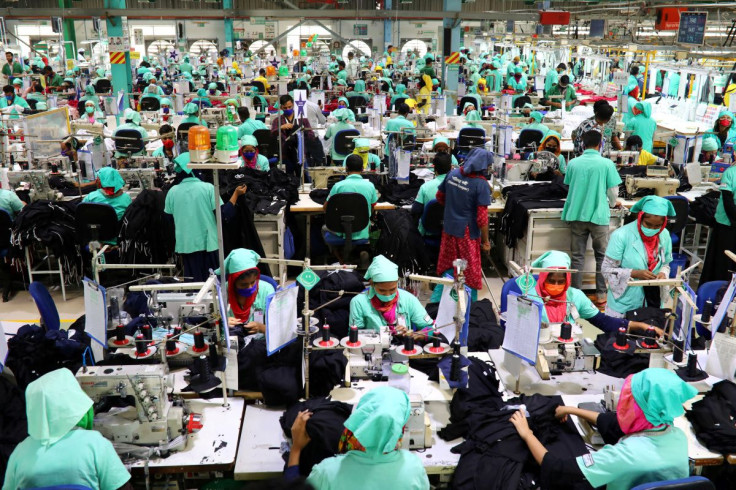Bangladesh Opts For Climate Route To Address Economic Woes

Yet another nation is banking on the International Monetary Fund's aid to shore up its economy. But Bangladesh is knocking on the Fund's door under a special aid package, mixed with a climate strategy.
The South Asian nation has sought $4.5 billion from the IMF as its balance of payments is in the negative zone.
"...We need to stabilise our exchange rate," junior planning minister Shamsul Alam told AFP.
More than 90 nations have sought financial aid from the Washington-based IMF to cope with the pandemic-induced slowdown which was exacerbated by the Russian invasion of Ukraine in February. A few among them are in dire need of bailouts to avoid defaulting on loans or being unable to pay bills.
According to the World Bank, the Russia-Ukraine war disrupted the global energy market, which resulted in the biggest surge in crude-oil prices since the 1970s. The soaring energy prices could reduce global output by nearly 1 percent by 2023-end.
To meet the increasing demand for financial aid from nations, the Fund has set aside about $250bn, a quarter of its $1tn lending capacity, to distribute among member nations.
Sri Lanka and Pakistan in South Asia are seeking bailouts from the IMF. In the case of Pakistan, the process started in 2019 but got struck later. The issues have been sorted out and a preliminary agreement to revive a $6 billion bailout package is on. The IMF is currently holding talks with the interim government in Sri Lanka to piece together a bailout package for the beleaguered nation.
With a strong $416 billion economy, Bangladesh has been one of the fastest-growing nations in the world for years, but rising energy costs and skyrocketing food prices, caused by the Russia-Ukraine war, have inflated its import bill and the current account deficit.
Bangladesh is seeking aid under the creditor's Resilience and Sustainability Trust (RST), making it the first in Asia to make such a request to address transformational changes, notably climate change.
The aid will be used for its balance of payment and budgetary needs, and to meet climate change requirements supported by accompanying IMF programs.
It's a joint initiative. So, Bangladesh will have to undertake a regular IMF-sponsored program to get this new type of financing, said Krishna Srinivasan, IMF Asia and Pacific director.
RST funds are capped at 150 percent of a nation's quota and in Bangladesh's case, the maximum of $1 billion with a 20-year maturity and a grace period. The IMF expects to kick start the lending process in October.
In the case of Bangladesh, the foreign currency reserve, which stood at $39.8 billion -- the lowest since October 14, 2020 - on July 12 is not big enough to cover about five months' import bills. In the same period last year, the country had $45.5 billion in its kitty.
As fuel prices surged, Bangladesh shut down diesel-powered plants. The country's hundreds of thousands of mosques have been given orders to only run air-conditioners during prayer times and shops have been asked to shut down by 8 pm.
In the past three months, the country's taka effectively slid against the U.S. dollar by around 20 percent. The depreciation of the local currency has further weakened the nation's finances, with the current account deficit hitting $17 billion.
The precarious financial position is further worsened by the unprecedented floods in the northeast, inundating more than 7 million people and causing $10 billion in damage.
The opposition Bangladesh Nationalist Party alleged that the government squandered the nation's wealth on multibillion-dollar vanity projects.
The export-oriented garments industry, the country's economic mainstay, is passing through a slowdown as big-time customers like Walmart are saddled with a backlog.
After garments, remittances, the second highest source of foreign currency in the country of 170 million, are also falling. The trade deficit widened as remittances dwindled by 5 percent in June to $1.84 billion. In the first 11 months of the fiscal year that ended on June 30, imports increased 39 percent while exports grew only by 34 percent.
The government has announced a policy to preserve dollars by discouraging imports of luxury goods, fruits, non-cereal foods, and canned and processed foods.
The RST can save Bangladesh from its current crisis. However, it all depends on the political and social climate in the country and the weather in the country.
























